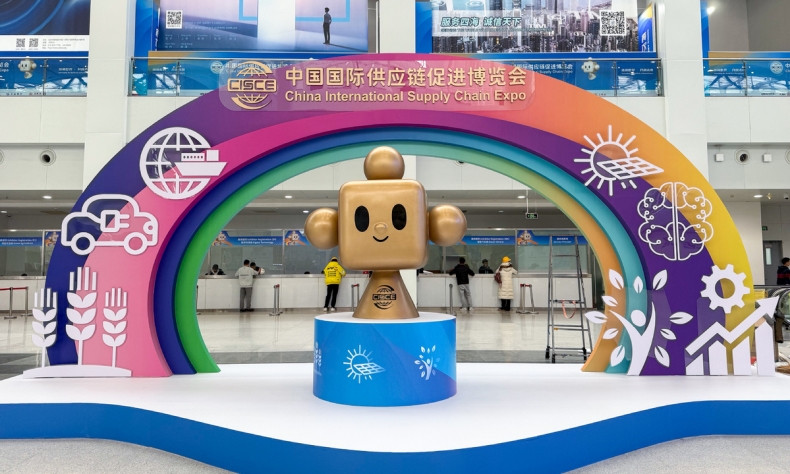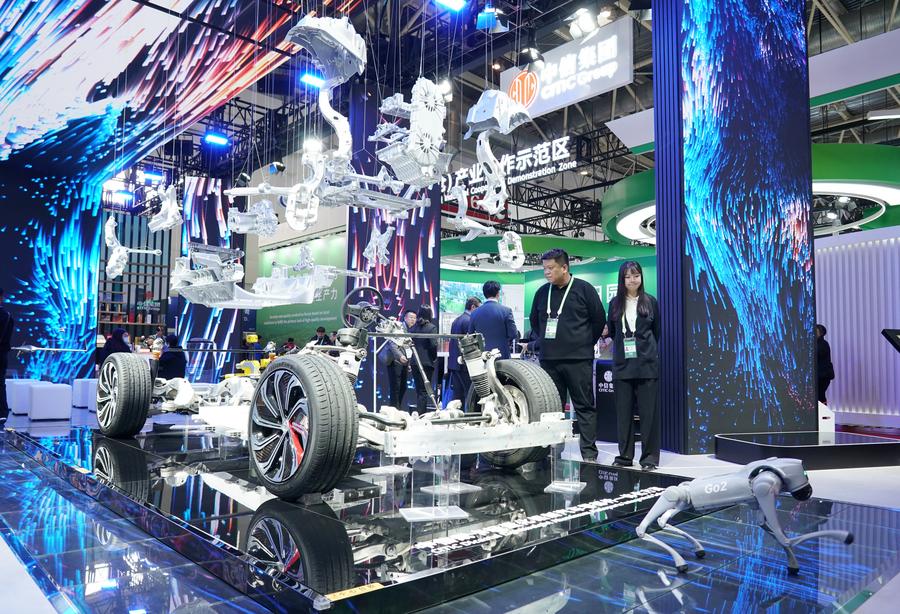Global Supply Chain Stability Remains Critical

Given the impact of tariffs on international supply chain stability and the need for further protections and future collaborations, the 3rd CISCE’s role is critical.
Punitive U.S. tariffs have sent shockwaves around the world, and it is increasingly clear that the preservation of global supply chains should take center stage. Here is why global supply chain stability is more critical than ever.
First, it is obvious that the unwarranted U.S. tariffs have thrown the global economic and trade order into limbo. Global supply chains – from food security to manufacturing and other associated sectors – put a premium on the free flow of raw materials and liberalized trading links between countries.
Supply chains, in their truest sense, should be seen as a measure of international stability, and thus require a collective consensus on their protection. That is precisely the outcome that U.S. President Donald Trump’s tariffs on scores of countries risk weakening. “No one person should have the power to impose taxes that have such vast global economic consequences,” said Jeffrey Schwab, senior counsel at the Liberty Justice Center, in a recent statement. “The Constitution [of the United States] gives the power to set tax rates – including tariffs – to Congress, not the President.”
Consider the impact on global supply chains. Despite the “reciprocal tariffs” being suspended for 90 days and replaced with a 10% global tariff, key equipment manufacturers have been forced to rethink their trusted supply chain networks, making trade diversion a pressing concern. Automotive supply chains are also a target as Trump imposes tariffs on steel and aluminum, prompting widespread retaliation reaching as far as Europe. The future outlook for stability thus remains bleak, given the multiplicity of tariffs imposed, the volatile nature of changes, high degree of market uncertainty, and difficulties among businesses in charting a collective response.
It is true that the world has seen constraints on global supply chain stability before, but the sheer pace and scale of the recent U.S. tariffs merit particular concern. For instance, Vietnam – a fixture in the international athletic footwear supply chain – has suffered a huge tariff blow, offering a glimpse of tariff disruptions felt across the international fashion supply chain. The electric vehicle (EV) industry is also no exception. And there are fears that the ripple effects are likely to spread, highlighting the need to plug supply chain vulnerabilities at a time of rampant pressures.
For these reasons, it is difficult to understate the role of the 3rd China International Supply Chain Expo (CISCE). Spanning a wide range of sectors, including manufacturing, smart vehicles and green agriculture, it provides insight into the different fields that remain central to global supply chains. Its track record of supporting resilient global industrial and supply chains is a key advantage. Look no further than the second installment of the expo, which became a catalyst for bringing together scores of Fortune 500 companies and charting pathways for business matchmaking. Participation from dozens of companies, global organizations and country representatives also bolsters international support for supply chain cooperation.

Therefore, the 3rd CISCE, under the theme of “Connecting the World for a Shared Future,” is even more important for fostering dialogue and addressing record-setting volatility in global supply chains. What risks qualify as most critical to companies? And how can various stakeholders in industrial supply chains come together to foster resilience for the future? What will it take to achieve stability in the future? The 3rd CISCE offers a valuable opportunity to address these questions, and helps attendees understand international supply chain solutions backed by Chinese enterprises. “Through supply chains, we’re connecting the world’s businesses, products and services, building bridges for industrial integration, innovation and market access,” said Ren Hongbin, chairman of the China Council for the Promotion of International Trade. “The platform has become an open driver of mutual growth and win-win cooperation between China and the world.”
Years of international cooperation have shown that companies cannot afford to operate in silos. Those with a huge stake in procuring materials for critical industries need to join hands with their counterparts to understand common challenges. Coming to terms with these challenges is particularly important at a time of rampant supply chain disruption, and to help stakeholders strategize to protect shared supply chain interests. This is why connectivity – a fixture in the 3rd CISCE’s theme – is such a central element of any lasting supply chain dialogue. Not only are firms able to take the pulse of multisector considerations spanning automotives, sophisticated manufacturing and pharmaceuticals, but they are also well positioned to increase market access to China, which plays a pivotal role in key supply chain spaces.
This includes the electronics industrial chain, which has seen a rapid expansion in Chinese expertise – from product design and production to implementation. The 3rd CISCE stands to generate new value for international firms by increasing their exposure to supply chain scalability and feasible business models. The expo also offers an opportunity for market integration and to bring together international businesses on a spectrum. Through a diverse range of pre- and post-exhibition engagement events, the CISCE can also create lasting connections between exhibitors and strengthen business ties in the process.
Interestingly, the CISCE is an important manifestation of China’s belief in spearheading global supply chain resilience and collectively offsetting international pressures. Over 200 cooperation pacts and letters of intent were formalized during the event last year, demonstrating its impact and ability to spur collaboration. Anticipation this year is high, considering that downward pressures on supply chain stability have increased the need for meaningful and transformative cross-sector collaborations.
Ultimately, given the impact of tariffs on international supply chain stability and the need for further protections and future collaborations, the 3rd CISCE’s role is critical. China – with its mission to consolidate international industry chains – speaks to the motivations and needs of scores of enterprises that wish to prioritize development and limit adverse risks.
Hannan Hussain is co-founder and senior expert at Initiate Futures, an Islamabad-based policy think tank.
 Facebook
Facebook
 Twitter
Twitter
 Linkedin
Linkedin
 Google +
Google +










